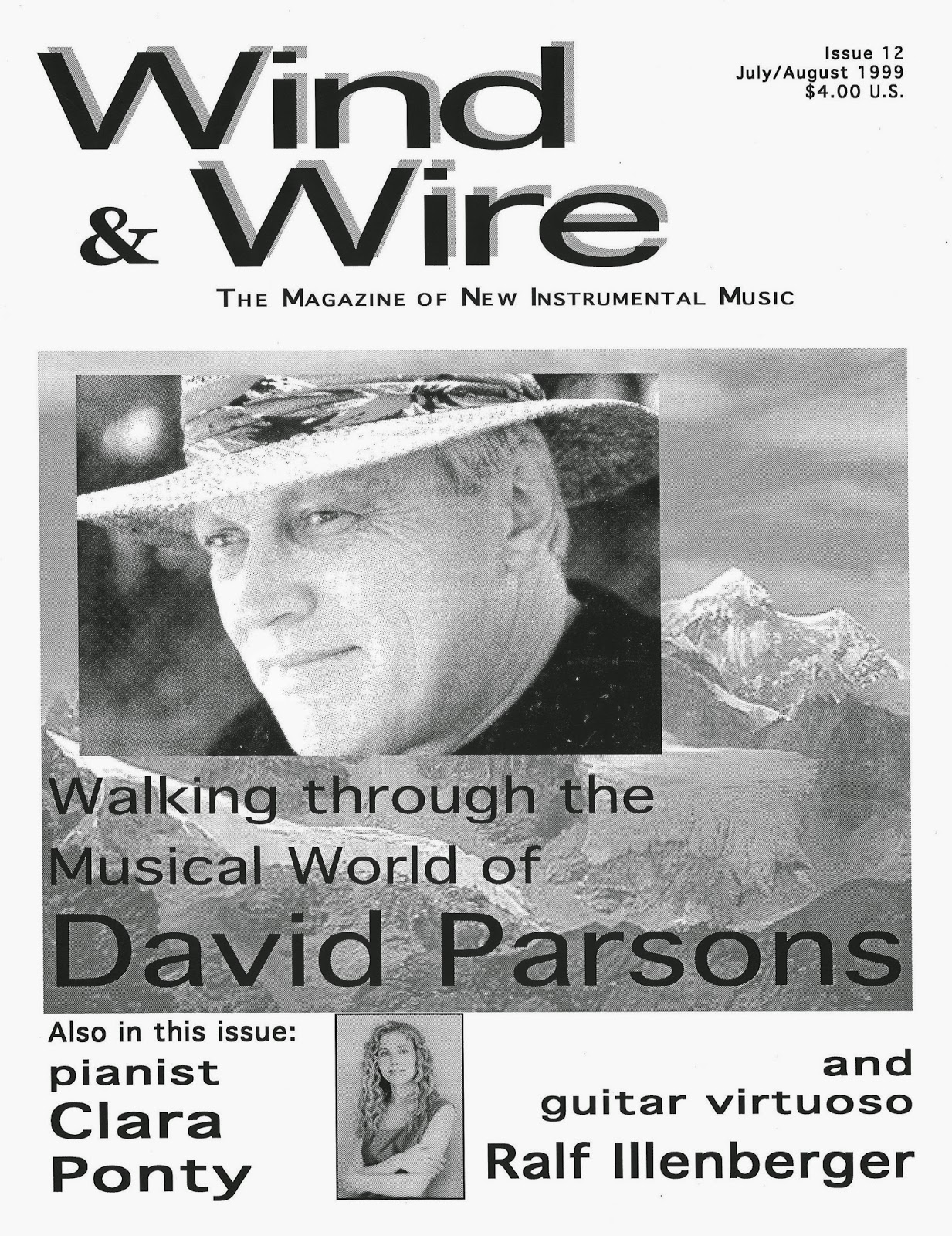Spirits
Besides plying his craft on bass guitar (fretless and fretted), Scott also plays keyboards and drums and percussion programming. He is joined by a great crew of guest artists, all of whom contribute mightily but the one person I feel I would be remiss not mentioning up front is John Pirruccello who plays steel guitar on five tracks and man, does he play steel guitar! (He also performs on mandolin on one song). Other guests appear on acoustic guitar, piano, organ, drums, electric guitar, percussion, violin, flute, and English whistle, I hope that, as I listed all those instruments, you started thinking, "Wow, this sounds ambitious!" Yeah, Spirits is all that and then some. Crisscrossing between genres with tasteful audacity, Scott and crew have hewed out a meshed genre that they then call their own. Jazz fusion, blues, world beat, ambient, chill-out - hell, it’s all there in one way or another, but the real joy of Spirits is what a melting pot approach it embraces. The songs are just this singular achievement of taking elements and combining them into a stew that is both wholly accessible (to say the least - I have played this album something like 10-15 times and love it more each time) and also boldly adventurous. The most amazing aspect of this recording is how effortless it sounds, as if Scott and his compatriots did all this instinctively, yet adhering to a cohesive musical vision that is, well to be honest, kinda mind-boggling.
Pealing steel guitar opens "Peace On Saturn" quickly joined by Scott's bouncy, cheery lead bass line. The merging of the steel guitar's "island" feel with the laid-back thumping of the bass notes is instantly appealing; it's funkalicious but in an oh-so-relaxed way. "Other Planets" starts off in a spacey vein before ethnic percussion cuts in on the synth pads and ethereal vocals, and here comes Scott spiraling in with a simply beautiful bass melody accented by some electric guitar that adds some cool sound effects without becoming too "out there." This music is just so darn mellow and gorgeous. Headphones are a revelation as the mix on this disc is something else, as all sorts of coolness lies in the peripheries on most songs. "Free" also kicks off in an ambient vein but when the violin cuts in, the song takes on a mournful cast with a hint of Irish melancholy. When the mid tempo rhythm enters (via percussion, drums and Scott's bass) the sad melody becomes even more pronouncedly Irish-inflected. "Donnie and Sancho" swirls out on moody synths at the outset before an acoustic guitar in the lead (accented by Scott's bass) takes the cut into spaghetti western territory, with a dash of menace and danger laced into the Spanish-flavored guitar and soulful bass lead. One expects to hear the Man With No Name utter a sparse line of dialogue at any minute. "Weightless" once again shines the spotlight on Pirruccello's steel guitar, pealing languidly alongside Scott's lead bass which pumps out another slice of laid back goodness. Scott composed all twelve of the tracks on the disc, save one which is an interesting take on Lennon/McCartney's classic "Yesterday." What strikes me every time I play Spirits is that Scott composed all this diverse music and also how unselfish he is with all these guest artists. Yeah, bass is frequently prominent in the mix, but always as part of an ensemble sound. Scott is one of the best "team players" I've heard in a long time.
There's so much more I could write about Spirits…the joyful Celtic-fusion-flavored "Run," the down-home folksiness with a hint of blues on "Foggy Bridges" and the dramatic miasma of world fusion (with Indian spiciness) meets infectious chill-out (think Ace of Bass catchiness - and don’t deny that the beats from "All That She Wants" weren't classic!) with a dash of Fargo soundtrack on "Gypsy Mother and the Royal Bastard."
Spirits is just so damn fantastic that I can’t think of a fitting end to this review except to say that it's one of the best performed, most imaginative, and most engaging albums I've had the pleasure of reviewing in the last several years. Erik "Eski" Scott is a visionary artist and Spirits is solid proof of that statement.
Spirits can be purchased at CDBaby, Amazon, and iTunes





